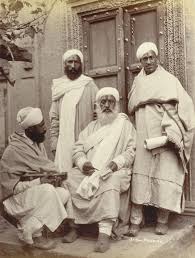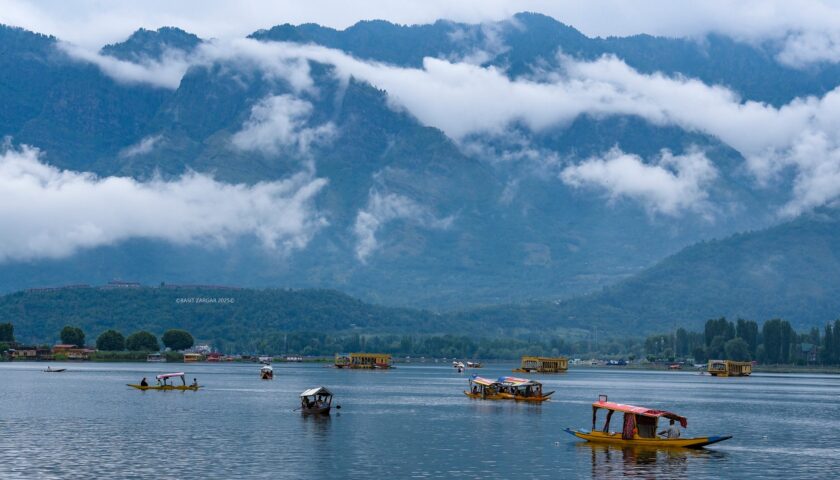 Adam and Eve would have felt it hard to leave from heaven, so had Ibn Battuta, the greatest traveller of Muslim world, when he left his home. His initial writing dipicts how much he was attached to his land and home. “It weighed grievously upon me to part with them, and both they and I were afflicted with sorrow” were his words when he left his home, Tangier. No doubt, all over the world men/women are emotionally attached to their land, people, habits and culture. Even the Bedouins will find their stomachs out when moved from their deserts. So were we, when we had to travel outside the state for studies. We greeted each other with sullen and sad faces. To keep our selves compact emotionally a discussion was started.
Adam and Eve would have felt it hard to leave from heaven, so had Ibn Battuta, the greatest traveller of Muslim world, when he left his home. His initial writing dipicts how much he was attached to his land and home. “It weighed grievously upon me to part with them, and both they and I were afflicted with sorrow” were his words when he left his home, Tangier. No doubt, all over the world men/women are emotionally attached to their land, people, habits and culture. Even the Bedouins will find their stomachs out when moved from their deserts. So were we, when we had to travel outside the state for studies. We greeted each other with sullen and sad faces. To keep our selves compact emotionally a discussion was started.
One of our friends accused Kashmiris of being lazy, unscientific and lethargic during the discussion. Our minds lost the memories of our dear ones we missed and got involved defending Kashmiris. The atmosphere became hotter and hotter as the discussion went on. My fellow travellers turned the pages of our history. The short trip from railway station (Kaka Pora) to Banihal revealed the contribution of our land to the world.
Timidity, delicacy, wisdom and patience are all that the environment of Kashmir has bestowed on us. The likes of Kalhana (the historian), Abinav Gupta, Lal-Ded, Habakhatoon, Mehjoor, Sheiklul Alam have been cherished by this land. Common people are kept aloof from our history that we have been the great conquerors of the world. Lalitadatiya and Shahabudin are the finest examples of this. Their rule swayed over millions of miles. From east to west we have been the rulers. Even the famous Mughals could never defeat us by force. Akbar, the secular, had to resort to treachery to find his way into Kashmir.
History is full of admiration for Kashmir and its people. The fourth Buddhist conference was held in its lap. Kanishka gathered around 500 monks for this gathering. The stupas found all over the Kashmir is the testimony of its culture and grandeur. The engineer, Suya, still is on every one’s lips. He was the one who managed the water’s of Jehlum and made way for sustainable irrigation and agriculture. An unimaginable feat in the times of Raja Avantiwarman. He worked on a method to de-silt Jhelum, and make embankments across it. He tamed the furious river Jehlum. World has never seen such a feat accomplished with a low level of technology. Gani Kashmiri, Wahab Khar and Rasul Mir are famous for their poetry.
Kashmir was lucky to have Zain-ul-Abidin as its king. He patronized art and culture. He patronized scholars like Jonaraja, Srivara, Soma Pandit, and Bodhi Bhatt. Among the Persian and Arabic scholars names of Maulana Kabir, Mulla Hafiz Baghdadi, Mulla Jamal-ud-din, and Qazi Ali Mir are very prominent. He is said to have established a library which continued to be in existence even after his death. Zain-ul-Abidin for the purpose of earning merit built extensive lodging houses for students and voices of students studying logic and grammar arose from these houses. The king helped students by providing teachers, books, houses, food, and money and he extended limits of learning in all branches. Many hakims from Central Asia came to his court. He also maintained a number of charitable institutions and distributed free food among poor and infirm. Sultan reorganised his army and made it into formidable force which he used to re-conquer Punjab and Western Tibet. He sent his ambassadors to Khorasan, Turkistan, Turkey, Egypt, and Delhi.
Our region is also famous for its pashmina, handicrafts and shawls throughout the world. The art of pashmina dates back to 3000 BC. It adorned the court of Caesar and was the pride of French queen, Marie Antoinette. Impressed with the unparalleled looks of Kashmir shawl, Emperor Napoleon presented it to impress Josephine. The beautiful vale of Kashmir has always been famed for its craftsmanship. The wearing of tapestry shawls was first introduced into the valley from Turkistan by Zain-Ul-Abdin, the ruler of Kashmir, in the 15th century. Production benefited from the patronage of the Mughal rulers like Akbar and his successors, who wore these shawls, and also because of patronage of local government.
Gender inequality in ancient Kashmir was not seen. The lives of the women seemed to have been better than the present times in the society. In ancient Kashmir women enjoyed a comfortable position as is depicted in Nilampurana, and there was no attempt to marginalise them. They would participate in every festival like Iramanjari-utsava festival. The women were active in social and political life. Women like Khadana, Amritprabha, Chaktamardika, Kalyandevi, Ratnadevi and Kamla Devi built shrines and marketplaces and towns which depict their high stature. Most of the traditional societies defined the concept of gender in terms of emancipation of man and subjugation of women. Women were perceived as inferior as compared to men. In Kashmir women were given their due position.
Our history and our achievements are deliberately kept hidden from common people especially youth. There is a huge conspiracy on the part of few people to intrude our thoughts and our literature to prevent nationalism to take roots. Our literature contains much of the proverbs which promote lethargy and escapism. Our dressing codes have been fashioned on these lines. Our traditional cloth (pheran) and fire-pots (Kangri’s) are one of these. Even subsidies on food supply have been designed to promote dependence and there is no incentive for hard work. During the national freedom struggle of Kashmir under Sheikh Mohammad Abdullah, many tried to revive our indigenous thought and literature. It is a deliberate strategy to make people cut off from its roots. Many have fallen prey to the propaganda. This is done to make our youth hate their culture, their roots and the history. It is necessary that people are made aware about the correct history so they feel proud of their land. It is of huge importance that curriculum should be channelized to make people aware of their history. The criminal negligence is to keep people under the subjugation both emotionally and intellectually. This has to end.
Allama Iqbal (R.A) once said in his famous couplet:
‘So skilful of hands, so rich in mind, these people, alas, or pure breed;
O God, your justice, so long delayed, must come at last as a retribution’.
The author is pursuing Ph.D at Aligarh Muslim University in Deptt of Economics and can be emailed at suhail029@gmail.com.




